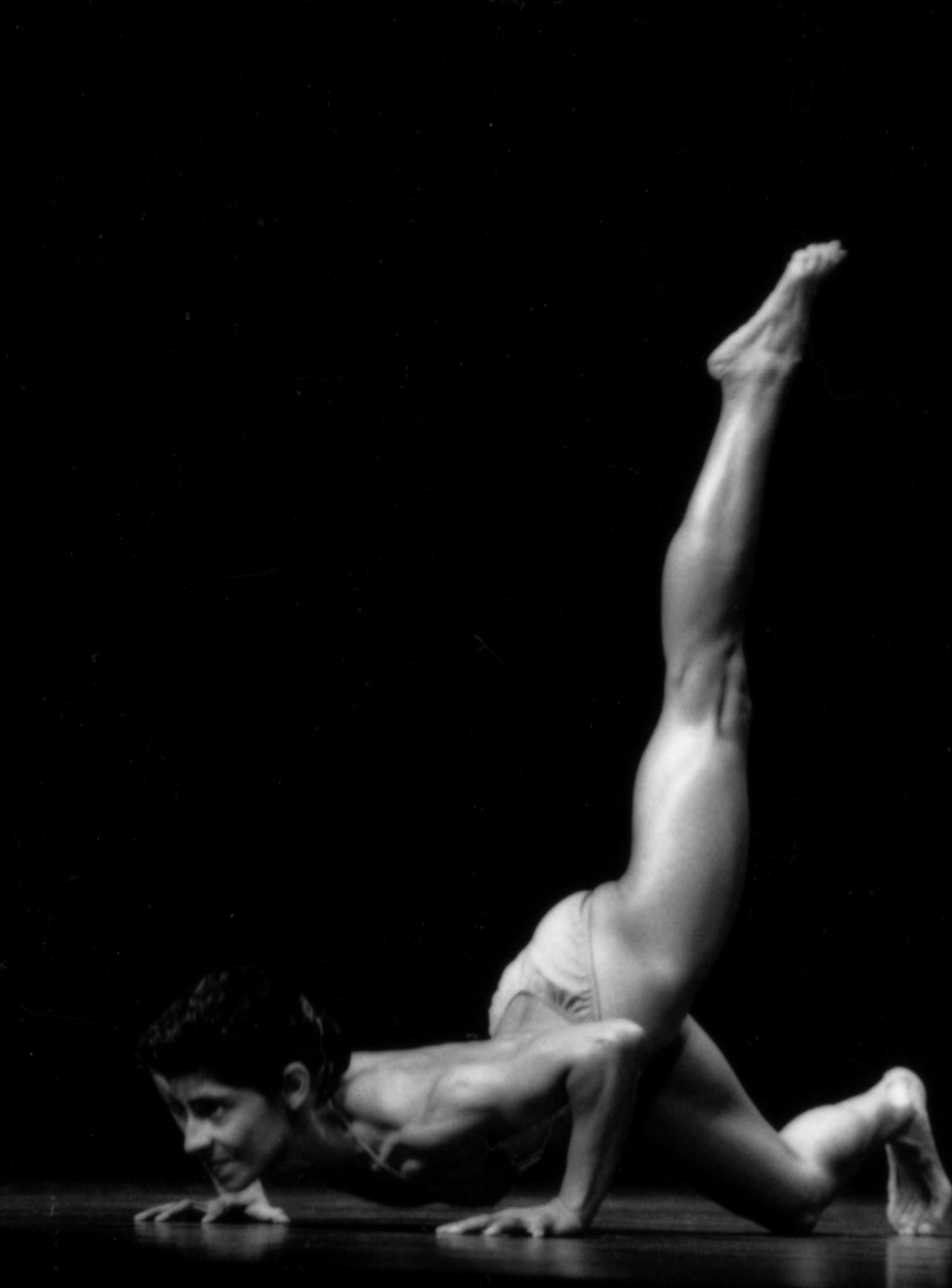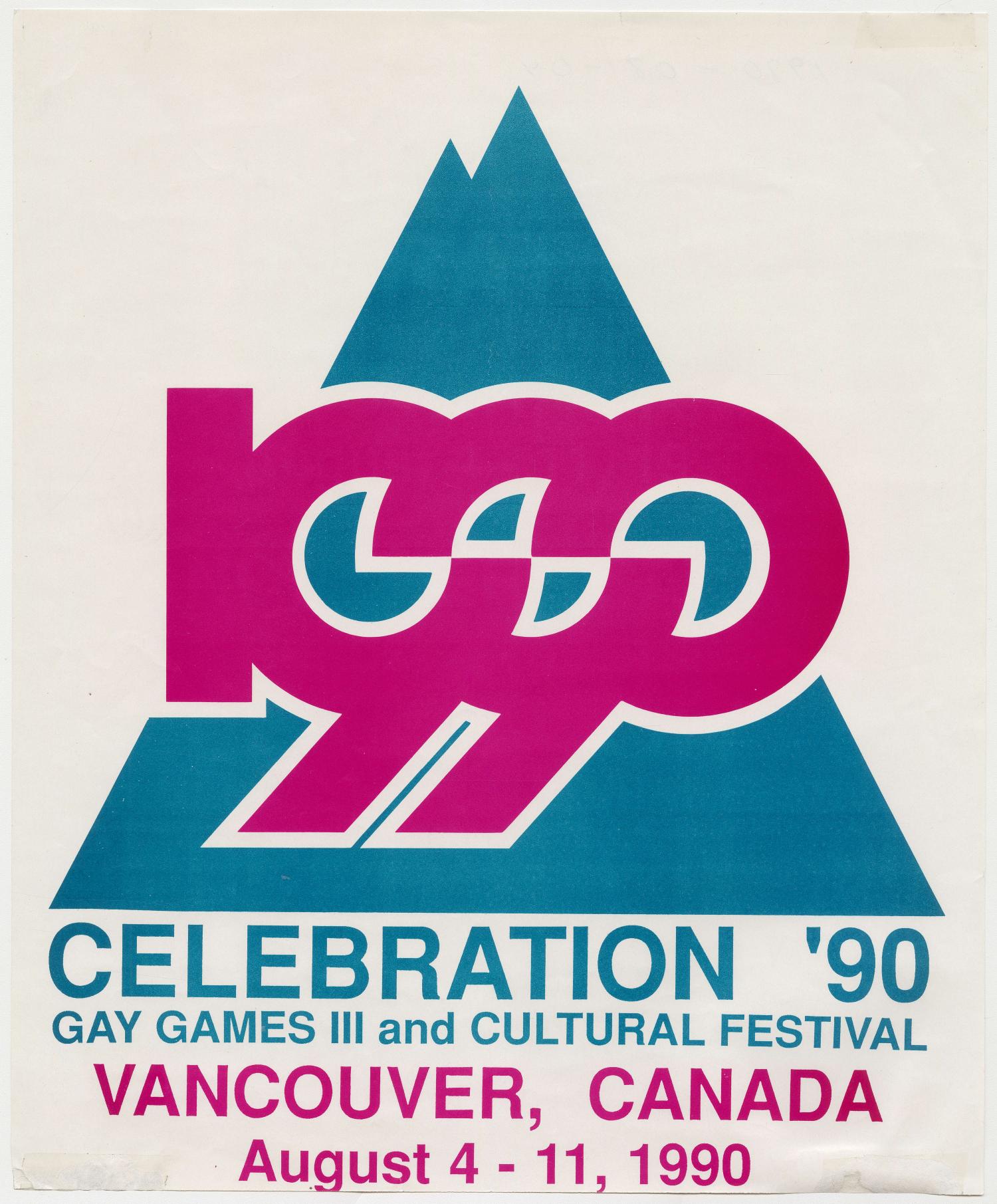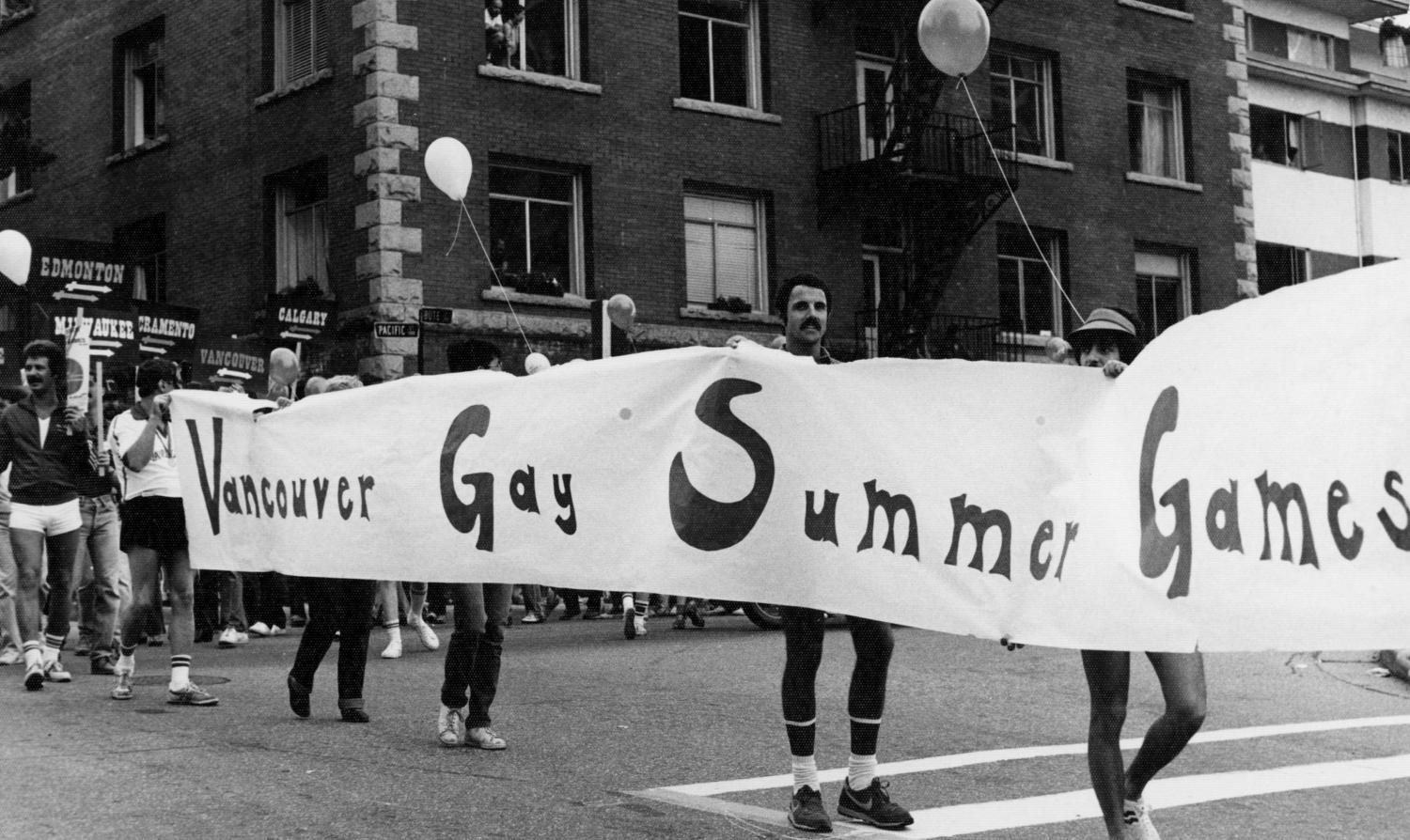Vancouver Hosts the Gay Games
The year’s largest sporting event in the world brings healing to a community
Date: 1990
In August 1982, Betty Baxter — one of Canada’s best volleyball players — found herself in San Francisco for the inaugural Gay Games. She wasn’t competing; she watched from the stands of Kezar Stadium as 1,350 athletes from all over the world, including a squadron of 55 from Vancouver, paraded in. For Baxter, this moment was magical. After years of playing at an elite level, including at the 1976 Olympics when she was the captain of the women’s team, rumours had spread surrounding her sexuality. In the spring of 1982, she was fired from her post as the coach of the national team — because she was rumoured to be a lesbian.
The spirit of inclusivity in the San Francisco stadium, filled with celebratory pride, was something else entirely. It was healing. And for Americans Tom Waddell, Paul Mart and Mark Brown — the creators of the “gay Olympics” — this was the intention. After that week in August, the Vancouver team would leave with a number of medals. But they left with something else, too: the desire to bring that magic back home.
By the end of the year, concrete steps were already being made to bring the Gay Games to Vancouver. By 1985 Richard Dopson, who had encouraged the formation of the Vancouver team in 1982, and Baxter both served on the committee to submit a bid to host the games. They knew they had big shoes to fill; it would be, after all, the first time the event was held outside of San Francisco.
The bid was a success. In 1986, at the Gay Games II held in San Francisco, Waddell announced that the next games would be held in Vancouver.
Support for the games was not universal back home. Perhaps the most vehement of disapproval came in full-page ads placed in local newspapers in the fall of 1989: “Time Is Running Out — Concerning Gay Games Vancouver.” The ads were anonymously paid for “by Christian Leaders who live in Greater Vancouver and love this city and its people.” But few found them convincing. Religious leaders came out against the demonstration of homophobia, and organizers for the games were flooded with calls from those who wanted to volunteer. Public opinion was now on the side of the games.
And the extra help was needed. Planning for the Gay Games III — or Celebration ‘90, as it was called — was turning into an immense effort. As the AIDS crisis was in full swing, AIDS Vancouver and the Women and AIDS Society helped assemble thousands of AIDS kits stocked with brochures about prevention, information on local services and messages encouraging safe sex. Ultimately, over 2,000 people volunteered for the games.
From Aug. 4 to 11 in 1990, over 7,300 athletes participated in the games in 29 different sporting categories, from croquet to a triathlon; it was the year’s largest multi-sport, multinational event in the world. Athletes came from 27 countries, from East Germany to Japan to Zimbabwe; 1,460 came from Canada alone, with Canadian athletes from Vancouver Island to New Brunswick. Registration was open to anyone regardless of gender, sexuality or ability. Indeed, Celebration ‘90 achieved a gender ratio unseen in international sporting events, with women making up 43 per cent of its athletes. “It changed the city,” Baxter would later tell reporters. “The city became a place where if you were gay or lesbian or bi, you could walk down the street and feel like this city welcomes me. And that was a big shift."
The spirit of athleticism and acceptance that was so central to Celebration ‘90 lives on in Vancouver today. A number of LGBTQ sports leagues operate year-round, including gay and lesbian curling, hockey, tennis and rodeo leagues.
Sources:
- Leger, Polly. “This Olympian Was Outed in the 1980s. The 1990 Gay Games Helped Her Reconnect to Sports.” CBC, 31 July 2019, www.cbc.ca/news/canada/british-columbia/gay-games-1990-vancouver-1.5230803.
- “Vancouver Gay LGBT Sports Organizations and Groups.” My Davie Village, www.mydavievillage.com/lgbt-gay-sports-groups-vancouver. Accessed 2 Apr. 2021.
- VIVO Media Arts Centre. “Celebration ’90: Gay Games III & Cultural Festival.” Digital Museums Canada, 2020, www.virtualmuseum.ca/community-stories_histoires-de-chez-nous/celebration-1990-canadas-gay-games_gay-games-du-canada.





